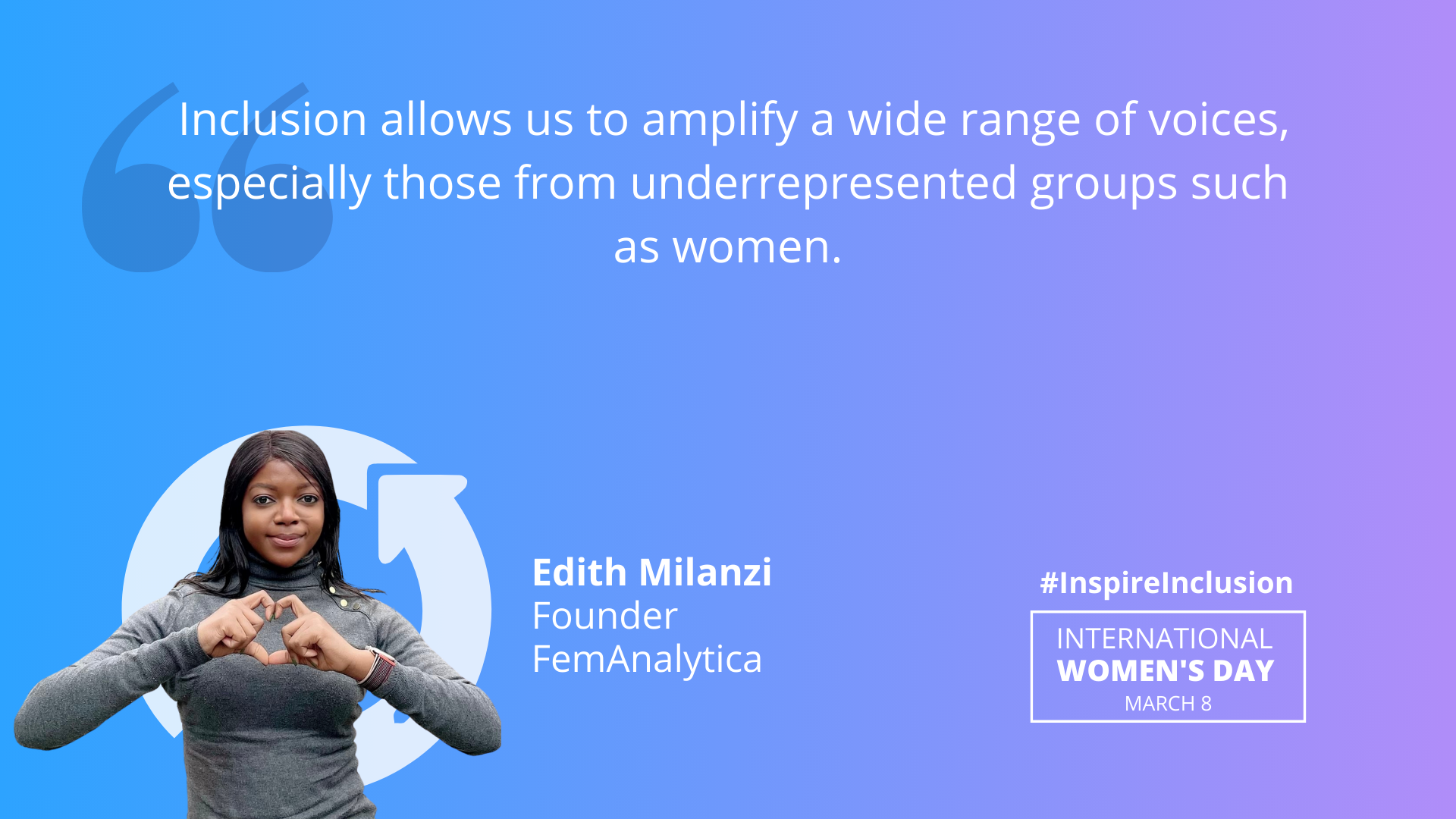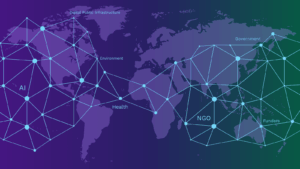On the occasion of International Women’s Day and its 2024 theme #InspireInclusion, the Datasphere Initiative spoke to four inspiring women working on different aspects of data governance to ask them why inspiring inclusion is important in policy and technical approaches to unlocking the value of data, and the actions they are taking to ensure inclusion in how data is used, managed and governed.
Edith Milanzi, Founder of FemAnalytica and Fellow of the Datasphere Initiative, shared her perspectives and identified specific actions that can be taken.
Read more about the campaign and other contributions here.
In the realm of data and indeed digital innovation, the principle of inclusion stands as a cornerstone for unlocking the comprehensive potential of data. To echo the Inclusive Data charter, this approach underscores the critical importance of incorporating diverse perspectives and experiences in shaping the development and implementation of data-driven and digital solutions.
Inclusion allows us to amplify a wide range of voices, especially those from underrepresented groups such as women.
Data policies and technical approaches that prioritize inclusivity take into account the unique needs of women and other marginalized groups, acting as a countermeasure against the biases and discrimination that can be embedded in data collection and analysis. This focus on inclusivity not only improves the accuracy of the analyses but also the relevance of the value we derive from data. Most importantly, a diverse workforce fosters and enhances creativity leading to more novel, equitable, and comprehensive digital solutions.
In addition, inclusive practices play a pivotal role in empowering communities. They do so by providing individuals with a say in how data about them is utilized, fostering a sense of ownership and collaboration between data practitioners and the populations they aim to serve. This helps build trust and facilitate cooperation, which are essential ingredients for the successful application of data for societal benefit.
A specific area where the inclusion of diverse voices is critically needed is in the integration of women into the data and digital landscapes, particularly within high-level policy discussions such as those occurring within the G20 framework. The relationship between women and the data and digital agendas is fundamental in shaping policy simply because representation matters. Addressing the gender disparities prevalent in technology and the digital landscape as a whole is not just about equity; it’s about harnessing the complete spectrum of talent and perspectives available. Including women in these critical conversations ensures that policies and innovations are crafted with gender equality as a foundational element, leading to more inclusive policies. Women bring unique perspectives, experiences, and skills to the table, which can significantly enrich the data ecosystem, driving creativity and innovation in addressing global challenges.
At Femanalytica we focus on leveraging data science for social good. We embody this commitment to inclusivity, with a particular emphasis on empowering women in Malawi through data literacy and technology training. Our initiatives are designed to enhance data literacy among women, equipping them with the necessary skills to actively participate in the rapidly developing data landscape. Equipping women with these skills allows them to fully participate in conversations about digital and data-driven solutions and contribute to shaping policy frameworks.
Dr. Edith B. Milanzi is a medical statistician and health data scientist from Malawi. She is a Datasphere Initiative Data Governance Fellow, an honorary Post Doctoral Fellow at Malawi University of Science and Technology, and a CIPHER Growth of Leaders of Tomorrow Fellow.
Edith founded FemAnalytica, a not-for-profit social enterprise whose core mission is to offer data science solutions to the social sector with an emphasis on equipping women with data science skills. She is the 2023/24 Women in Data Science Malawi Ambassador and current vice chairperson of the Organization for Women in Science in the Developing World (OWSD) Malawi chapter.




